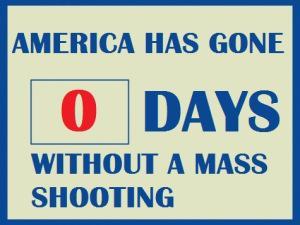
A poignant “too soon” joke
Matthew Daube’s recent piece pointed out The Onion‘s unique role in responding to tragic events like those in Newtown a few weeks ago. As he notes, the satirical newspaper, while performing comic bravery, still tempers its rhetoric with regard to stories of this nature. But while The Onion has built a reputation as a comedic first responder to tragedies of this nature, it is neither alone nor does it come close to showing the limits of “too soon” humor. Internet forums dedicated to sick humor offer limit cases in both speed and offensiveness. In this way, they offer a discourse that rebels against the framing offered by news coverage.
When tragedy strikes, American popular media tend to follow a script of information gathering, round-the-clock coverage, memorializing, and a tentative return to normal. Visual and audio cues like minor-key music and still photographs offer an emotive frame that distinguishes such events as more tragic and unique than the conventionally bad news that springs from war zones and more economically depressed areas. Eventually, dramatic fare – from films like Oliver Stone’s JFK (1991) or Lars Von Trier’s Elephant (2003) as well as television shows like Third Watch and American Horror Story engage with these events in ways that, while perhaps taking unique angles, more or less reinforce the dominant framing of these events as sacred moments of collective trauma.
Comedic responses to such events tend to be more dynamic and varied. Because of its temporality, wider range of generic registers, and many other reasons, television comedies tend to engage with such events more than does cinema. And television varies widely in this regard. While sick jokes about the Challenger explosion in 1986 certainly existed, my research has yet to uncover any such humor on television. In the immediate aftermath of 9/11, David Letterman’s famous return episode, while somber, offered moments of cautious, comforting humor. After some more time, South Park offered a mix of patriotic and critical humor, pointing the way towards more politically daring humor as well as those designed more purely to evoke laughing offense.
I agree with Daube that Newtown likely will not become a major topic for mainstream American humor, though the appearance of jokes about child victims in the traditionally safe television spaces of prime time and Jay Leno’s Tonight Show suggest that it is only a matter of time before such jokes infiltrate the mainstream in some form. For the present moment, however, internet forums like Reddit’s “toosoon” and “imgoingtohellforthis” sections as well as 4chan provide the most fertile ground for humor in this regard.
As opposed to The Onion‘s edgy, but relatively staid humor, these boards encourage humor that is both timely and extremely offensive. In the case of Reddit, a voting system more often than not serves as an inverse of traditional media’s censorship in that it tends to reward and promote the most offensive material. While sick jokes of these types have a long history, such board’s immediacy and relatively open systems of access and distribution make it fairly unique in history as a site of communal joke-making. Certainly, I am not the first to note this aspect of the internet, but in these cases, their ability to form a humorous counter-discourse to news media coverage of the initial event.
The humor on these boards is not homogenous. Certainly, a great many posts joke simply to offend for laughs. These instances of offensive humor offer the obvious forms of pleasure – mirth, relief from the overwhelming negative emotions, social status for the joke-maker. But there is an inherent political valence to these jokes as well since the ritual participation as joke-maker or audience member signals a refusal to participate in the dominant rituals of nationalism and performances of communal values – most obviously in this case, the innocence of childhood – that follow such events. Cultural theorists overuse terms like “subversive” and “counterhegemonic,” tending too often to reserve its use for those who share our own values. My own offense at the Newtown jokes, as a scholar who studies sick humor specifically, suggests to me that these expressions approach the limit of counterhegemonic discourse.
On the other hand, jokes in this vein, while offending with their flippance or odd juxtapositions often have more specific points to make. For example, the mockup of an industrial safety sign reading “America has gone 0 days without a mass shooting” highlights the increasing routinization of such violence, pointing to its role in a larger crisis of American gun violence. The absurdity that massacres are or could become routine offers a critical historical frame.

- A more conventionally political joke
As the days and weeks passed, examples of more pointedly political humor like the one above infiltrated these forums. These did not as explicitly reject the frame offered by news media in these cases. However, the majority of jokes in these forums continue to playfully reject the dominant frames of collective suffereing offered by news and other sources in the wake of Newtown. It is worth asking however, whether these jokes truly offer a counter-discourse. If sick jokes parasitically require the dominant frame, does the pleasure they offer as a momentary escape simply reinforce the idea that mourning constitutes the appropriate response to such events? The answer to this question, I suspect, depends on each individual member of the audience and varies from joke-to-joke.
(c) 2012, Phil Scepanski
